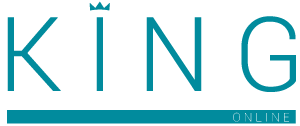PrEP FAQ's
FAQ
How does PrEP (Pre-exposure prophylaxis) differ from PEP (Post-exposure prophylaxis) and ART (Antiretroviral treatment)?
PrEP is a pill comprised of two anti-HIV medications taken daily to prevent HIV infections in HIV-negative individuals who anticipate they might be exposed to HIV – i.e.: before exposure. When taken correctly, PrEP can decrease the risk of HIV infection by up to 99%. It should ideally be taken for 7 days before exposure, and 7 days after the last exposure.
PEP is a pill comprised of three anti-HIV medications that is taken by HIV-negative individuals following a suspected HIV exposure, to prevent them getting HIV. For PEP to be effective, it must be taken within 72 hours of the suspected exposure and must be taken daily for 28 days following the exposure.
ART is lifelong treatment comprised of 3 anti-HIV medications taken daily by those who are confirmed HIV positive, to maintain immune function and remain healthy.
Can PrEP prevent sexually transmitted infections or pregnancy?
No, PrEP cannot protect against sexually transmitted infections or unwanted pregnancy. PrEP is an additional HIV prevention measure and should be used together with condoms where possible. Condoms are effective in preventing both sexually transmitted infections and unwanted pregnancy.
Does PrEP have any side effects?
PrEP is safe, with no side effects in most users. Some individuals report minor side effects in the first month of PrEP use, most commonly a little nausea that persists for a few days. Other side effects include diarrhea, headache, and abdominal pain.
If I start PrEP, will I have to take it forever?
No. You only need PrEP when you are at risk. You may be off and on it many times.
Will I need to do any tests before being started on PrEP?
Yes, an HIV test and some blood tests are required before being started on PrEP. An HIV test is needed to confirm those wishing to start PrEP are HIV negative. The blood tests assess hepatitis B and kidney function.
How long does it take before PrEP offers effective protection against HIV?
It takes at least 7 days of consistent use before PrEP protects effectively against HIV. During this period, other protective measures such as condoms should be used.
What should I do if I forget a dose?
Take the missed dose as soon as you remember it. However, if it is almost time for the next dose, skip the missed dose and continue your regular dosing schedule. Do not take a double dose to make up for a missed dose.
Can I get HIV when I am on PrEP?
If you take PrEP daily, you have very little risk of getting HIV, especially in combination with condom use. However, there is a very small risk – regular testing allows us to pick this up, and start treatment, which is highly effective, very quickly.
How often should I test for HIV?
HIV testing is done when first starting PrEP, 1 month after starting PrEP and every 3 months thereafter.
What should I do if I test positive for HIV?
If you tested positive for HIV, you are encouraged to start treatment as soon as possible.
Visit your nearest health clinic or General Practitioner to start treatment.
For more information you can contact or visit websites for the following organisations:
| Organisation | Contact number |
| National AIDS Helpline | 0800 013 322 |
| National Association of People living with HIV | 011 873 7156/ 58 |
| AIDS Foundation of South Africa | 031 277 2700 |
| South African National AIDS Council | 012 748 1000 |
| Brand South Africa: HIV and AIDS : How to get treatment and support in South Africa | 011 483 0122 / 011 483 0124 https://brandsouthafrica.com/62464/hiv-and-aids-how-to-get-treatment-and-support-in-south-africa/ |
| Back Next |
